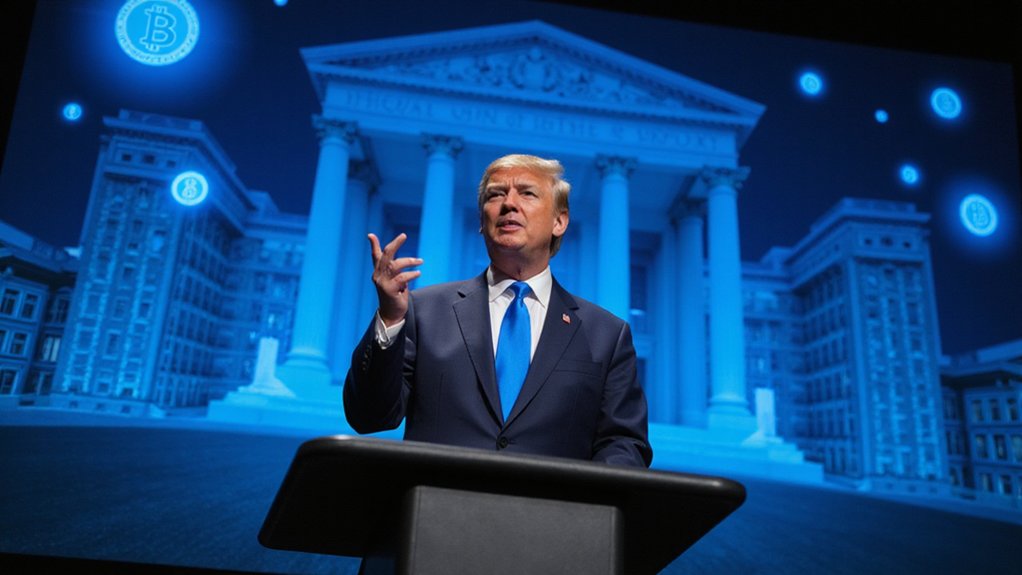In a stark admonition that echoes the disruptive ethos of blockchain evangelists everywhere, Eric Trump has issued a sobering ultimatum to traditional financial institutions: embrace cryptocurrency or face extinction within the decade.
The digital revolution won’t wait—financial dinosaurs face a stark choice: crypto adaptation or market annihilation.
The younger Trump’s prognostication hinges on blockchain’s purportedly superior efficiency metrics—transaction speed and cost—which he juxtaposes against the antiquated SWIFT network‘s cumbersome cross-border settlement processes.
Trump’s critique of legacy banking infrastructure isn’t merely technical; it’s political.
He frames the financial establishment’s reluctance to adopt decentralized solutions as symptomatic of a system that systematically favors ultra-wealthy clientele while implementing discriminatory practices against average citizens.
This perspective—whether genuine concern or calculated positioning—appears to be informing the Trump campaign’s increasingly crypto-friendly policy platform.
Eric Trump’s recent CNBC interview further solidified his position as a key crypto advocate within the Trump Organization’s leadership.
Meanwhile, the financial sector isn’t entirely oblivious to blockchain’s potential.
Banking behemoths like JP Morgan and Goldman Sachs have already made substantial investments in distributed ledger technology, albeit cautiously.
These institutions are exploring tokenized assets and custody solutions that might preserve their relevance in an increasingly decentralized landscape.
The UAE’s emergence as a crypto-friendly jurisdiction offers a telling counterpoint to America’s regulatory ambivalence.
Their progressive frameworks have attracted substantial blockchain investment, potentially foreshadowing a global realignment of financial power centers if other nations fail to adapt accordingly.
Trump’s fixation on SWIFT’s obsolescence merits consideration.
The international payment network’s days-long settlement periods and unpredictable fee structures contrast sharply with DeFi applications offering near-instantaneous, predictably priced transfers.
This efficiency differential—should it persist—could indeed render traditional intermediaries superfluous.
The strategic implications for banks are existential.
As DeFi platforms continue eroding profitable revenue streams, financial institutions face a Darwinian imperative to evolve.
Whether Trump’s decade-long extinction timeline proves prescient remains uncertain, but his central thesis—that blockchain represents an inflection point for financial services—increasingly appears self-evident, even to the industry’s most stalwart traditionalists.
His predictions align with industry forecasts suggesting cryptocurrency is shifting from speculative asset to practical utility, with clearer regulations potentially accelerating institutional adoption.









